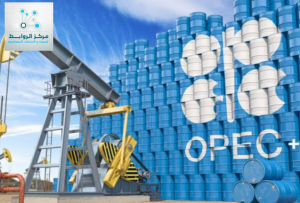By : Shatha Kalel
In August 2024, Russia announced it had successfully reduced its oil production to the required levels, in accordance with the OPEC+ agreement. This move, alongside the OPEC+ alliance’s decision to maintain its current oil production policy, has significant implications for the global economy. This article will explore what these developments mean, particularly in the context of globalization, and analyze their potential impact on the world economy.
OPEC+ Production Cuts: A Strategic Move
The OPEC+ alliance, which includes major oil-producing nations such as Saudi Arabia and Russia, has been carefully managing oil production levels to stabilize the market. The decision to keep the current production plan unchanged, with a gradual phasing out of cuts amounting to 2.2 million barrels per day from October 2024 to September 2025, reflects the alliance’s strategic approach to balancing supply and demand. Furthermore, the extension of previous cuts of 3.66 million barrels per day until the end of 2025 demonstrates OPEC+’s commitment to maintaining a controlled production environment.
Global Economic Implications
Oil Prices and Inflation: The decision to extend production cuts is likely to keep oil prices at elevated levels. High oil prices can lead to increased costs for businesses, particularly in transportation and manufacturing, which in turn can contribute to inflationary pressures. For countries heavily reliant on oil imports, this could strain economic growth and lead to higher living costs for consumers.
Impact on Global Trade: As oil is a critical input in global trade, higher prices could lead to increased shipping costs, potentially slowing down international trade. This could affect the supply chains of various industries, leading to disruptions and increased costs for goods and services worldwide.
Energy Transition and Globalization: The sustained high oil prices may accelerate the global transition towards renewable energy sources as countries and businesses seek to reduce their reliance on fossil fuels. This shift could reshape global energy markets, with significant implications for oil-exporting nations that rely on oil revenues. In the context of globalization, this may lead to a reconfiguration of economic alliances and trade relations, particularly as countries invest more in sustainable energy solutions.
Economic Uncertainty: The ongoing management of oil production by OPEC+ introduces a level of uncertainty into the global economy. While the alliance’s actions aim to stabilize the market, the potential for sudden changes in production levels or geopolitical tensions could lead to volatility in oil prices, affecting global economic stability.
Conclusion the decisions made by Russia and the OPEC+ alliance to manage oil production levels will have far-reaching effects on the global economy. These measures are likely to influence oil prices, inflation, global trade, and the pace of the energy transition. As globalization continues to evolve, the world economy must adapt to these changes, balancing the demands of traditional energy sources with the growing need for sustainability. The future of global economic stability may depend on how effectively countries navigate these complex dynamics in the years to come.
Economic Unit/North America Office
Al Rawabet Center for Research and Strategic Studies

